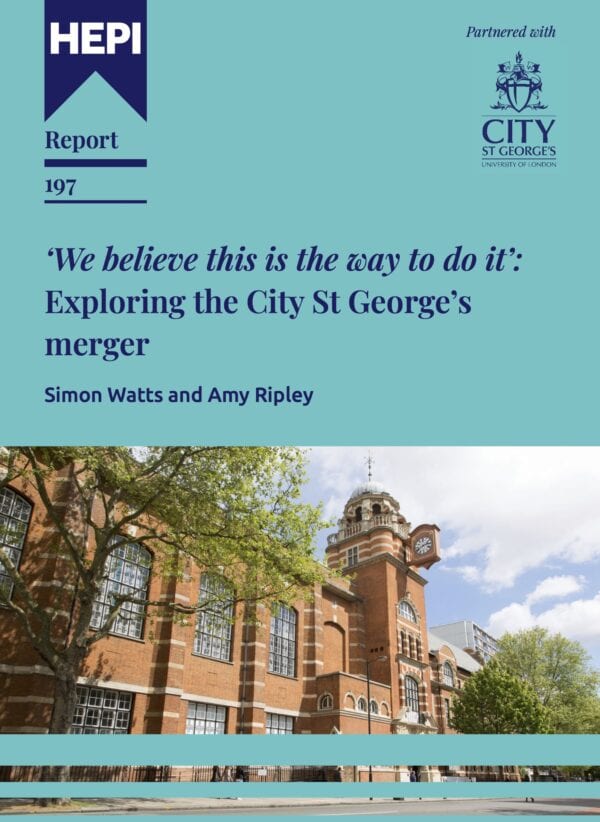What does our future workforce look like – and how are universities responding?
By Jamie Roberts, Policy Manager, and Aiste Viduolyte, PhD student intern at the Russell Group.
To achieve the government’s ambitious aims of increasing growth and productivity, the UK will need a skilled workforce to match.
All eight high-potential growth sectors identified by the government’s Industrial Strategy green paper will heavily rely on graduate skills – in particular the creative, digital and life sciences sectors, where over 70% of the workforce is made up of graduates. The government’s own forecasts show that the UK will need an additional 11 million graduates across the country by 2035, with 88% of new jobs being graduate-level.
To meet these needs on both national and local levels, Russell Group universities are building on their existing partnerships with colleges, businesses and local authorities to make sure education remains as relevant and responsive as possible for graduates and employers alike. Our latest briefing paper, Local Partnerships to Deliver Skills, looks in more detail at the ways in which our universities collaborate with industry, local government and education providers.
Here we explore three key characteristics of the UK future workforce – and how our universities are responding.
1. Workers’ skills must keep pace with employers’ rapidly evolving needs
The government is determined to get British business back to full health and has identified several growth-leading sectors in the Industrial Strategy green paper. These are likely to attract the most investment, but to generate productivity and deliver innovation, they will also need a workforce with the right set of skills – and these needs are evolving at speed.
Not only will we need new graduates with the latest skills and knowledge, but also existing workers who can be upskilled and reskilled to make sure the workforce’s capabilities keep pace with rapidly changing technological developments and industry practices. This is why Russell Group universities partner with industry to shape course content, ensuring education and training are agile and responsive to each sector.
Increasingly – now at 17 of our 24 universities – this includes degree apprenticeships, which give people opportunities to pivot or upskill at any stage of their career. Apprenticeships have become an essential pathway for delivering skills directly to industry at all levels, and almost 8,000 students enrolled on apprenticeships at Russell Group universities in 2023/24. At Queen’s University Belfast, for example, business partners such as PwC and construction firm Farrans are directly influencing apprenticeship course content and building talent streams in the areas where skills are most urgently needed, from digital software technology to civil engineering and building.
More and more, this also means partnering with Small and Medium Enterprises (SMEs) which form the bedrock of the UK economy. At the University of Liverpool, the careers and employment service works with a network of local SMEs to support graduate recruitment and ensure that the university’s graduates are equipped not only with the specialist and technical know-how, but also essential soft skills to enhance what they can bring to local small businesses.
2. Local workforces must meet each region’s specific needs, strengths and skills gaps
Whether it’s fixing cold spots or supporting existing industry clusters, we can’t take a one-size-fits-all approach across the country. Local growth plans will be vital in shaping each region’s workforce needs.
That’s why universities, as important anchor institutions in their towns, cities and regions, must be at the heart of these plans. Our members are already in active collaboration with local and combined authorities to research, understand and address local workforce needs – as part of City Deals, Civic University Agreements, or university involvement in local skills networks.
In Manchester, the University has teamed up with Greater Manchester Combined Authority and four other regional university partners to develop the first ever city-region Civic University Agreement (GMCUA) in the UK. This model is transforming the relationship between the university sector and local government, allowing them to work together on mapping skills and opportunities, particularly in green skills, the creative sector, health and social care. Meanwhile in London, UCL’s partnership with the councils of Camden, Islington and Newham enables students to contribute to local research and policy, while granting residents access to data skills and literacy training to improve their employability and career prospects.
3. Every workforce benefits from multiple educational pathways to build the best combination of skills and experience
While growing the UK’s graduate workforce, it is important we remain cognisant of the wide variety of educational backgrounds and pathways in our communities, and maximise the strengths that different providers bring. We need to move toward a skills and education system that incentivises true collaboration. Partnerships between higher education and further education are invaluable and should acknowledge that further education colleges are not just feeder institutions. Building on existing collaboration will allow students the best of both worlds, while creating cohesive educational pathways that complement, rather than compete with each other.
Through a mixture of academic and vocational training, our universities’ partnerships with our further education colleagues offer a broad range of expertise, which can support a variety of career options and cover the multitude of skills needed in each region.
Working together makes sure we not only fulfil a broader range of skills and sectors but also support greater access to education for all. A co-ordinated system, where further and higher education are aligned, creates clearer pathways for people of all backgrounds and educational experiences to access higher-level qualifications. This generates more mechanisms by which we can upskill our workforce.
A sustainable, highly skilled workforce is of course reliant on a stable, well-funded university system. which is one of the reasons the sector has been so keen to make government understand the scale and urgency of the financial challenges we’re facing. Simply put, the UK won’t have the right workforce to achieve its growth ambitions without considering the role of its universities.







Comments
Ros Lucas says:
Therd is sadly lack of any mention of the changes to the 14+ inflexibls, non vocational curriculum that would be required to enable awareness and understanding of future skills and pathways if we really intend to future proof skills for new industries.
Computer Science alone is unlikely to produce sufficient numbers or gender equality unless other LMI and apprenticeships info and more availability at all levels is dealt with now.
Options after GCSEs remain narrow and insufficient awareness and understanding apart from those in the Construction industry has resulted in 900,000 NEETS being produced as a result.
Reply
Anonymous says:
Most UK universities engage in all the activities discussed and are just as important as anchor institutions in their local areas. At a time of such turbulence in the sector, shouldn’t a HEPI blog do a better job of recognising the important role that ALL universities play in their communities?
Reply
Add comment